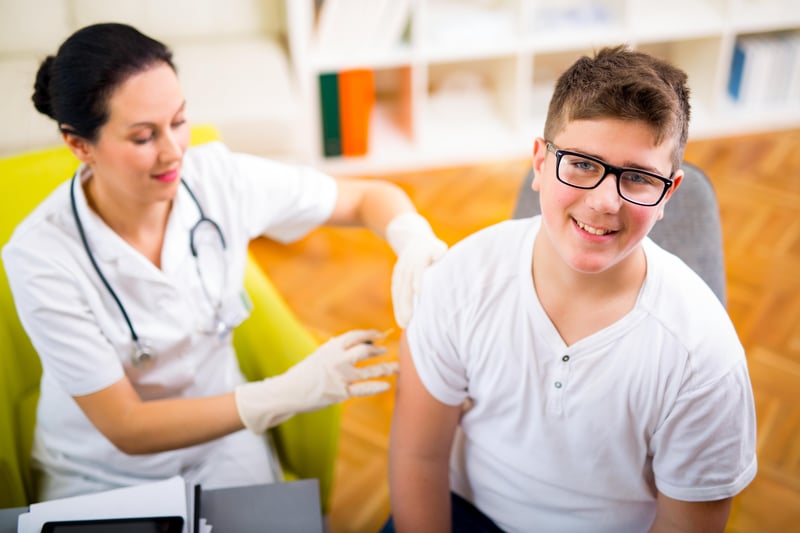Get Healthy!

- Dennis Thompson
- Posted September 12, 2022
COVID Shots' Effect Fades, But Boosters Bring Protection Back: Study
Updated COVID-19 booster shots that target Omicron variants are rolling out across the United States, and a new study argues they're coming at just the right time.
Protective antibody levels tend to decline by at least 15% each month after a person receives a single COVID booster shot, researchers report.
That said, getting a new booster dose will completely restore antibody levels and provide strong protection against severe COVID, the same researchers found.
"A second booster is highly recommended, especially for those with old age and underlying conditions," said senior researcher Dr. Shan-Lu Liu, co-director of the Viruses and Emerging Pathogens Program at Ohio State University.
In late August, the U.S. Food and Drug Administration approved the new COVID booster vaccines from Moderna and Pfizer, and they became available this month.
The new boosters are designed to protect against both the original coronavirus and Omicron subvariants.
The new study "comes at an opportune time because we are promoting this updated bivalent vaccine," said Dr. William Schaffner, medical director of the National Foundation for Infectious Diseases.
"These findings ought to provide reinforcing evidence that getting this updated vaccine is to your benefit, whether you have had vaccination or even if you have recovered from COVID," Schaffner said. "Your protection will be increased and likely prolonged."
For this study, Liu and his colleagues tested blood from 46 health care professionals who had received an initial two-dose mRNA vaccine as well as one booster shot.
They found that protective antibody levels declined between 18% to nearly 20% every 30 days, depending on the specific COVID variant.
That means antibody levels are likely cut in half within 95 to 108 days after receiving a booster, researchers said.
"This is how immune system works,"said Dr. Amesh Adalja, a senior scholar with the Johns Hopkins Center for Health Security. "Antibody titers will fall over time, and then will be boosted back up with re-exposure either through infection or through another booster."
Declines were slightly less steep in vaccinated people who also had a COVID infection, with antibody levels falling 9% to 17% per month, Liu said.
However, blood tests done on two health care professionals who received a second booster showed that getting another shot brought protection back to full strength, researchers said.
Those two people had an almost complete loss of protective antibodies against the Omicron variant three to four months after they got their first booster shot. But they had a complete recovery of their antibody response following a second booster.
These results make sense because humans already tend to lose their natural immunity against regularly circulating coronaviruses that cause the common cold, Schaffner noted.
"Coronaviruses are different, for example, than the measles virus, where you will have antibodies that are sustained for years and years and years and you'll continue to be protected," Schaffner said. "Human coronavirus antibodies fade, and then you can get another cold a year later."
The new study was published Sept. 7 as a letter in the New England Journal of Medicine.
More information
The U.S. Food and Drug Administration has more about the new COVID booster shots.
SOURCES: Shan-Lu Liu, MD, PhD, co-director, Viruses and Emerging Pathogens Program, Ohio State University, Columbus; William Schaffner, MD, medical director, National Foundation for Infectious Diseases; Amesh Adalja, MD, senior scholar, Johns Hopkins Center for Health Security, Baltimore; New England Journal of Medicine, Sept. 7, 2022





